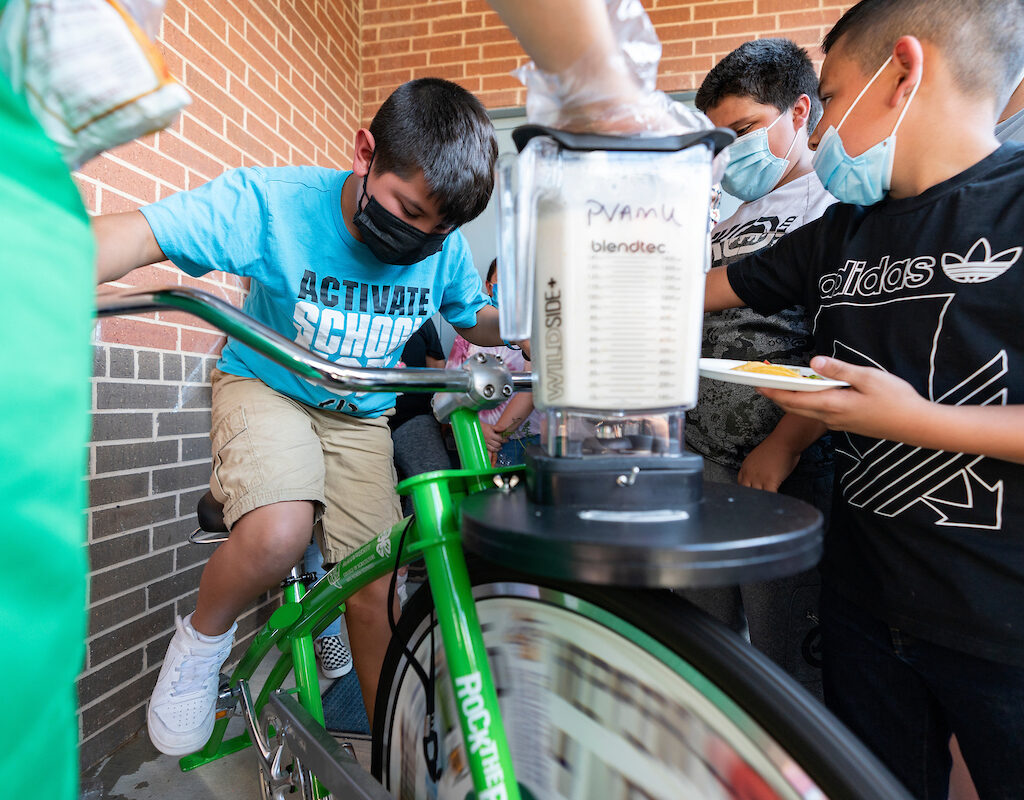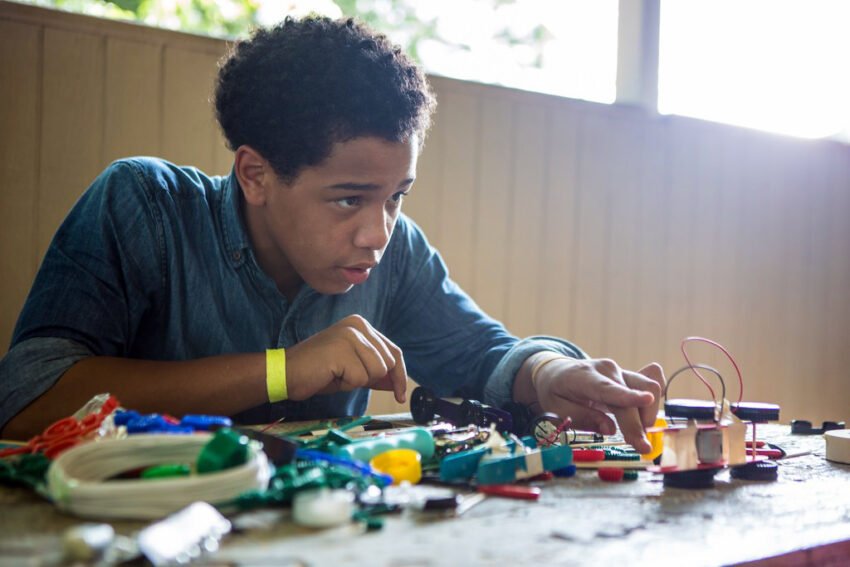4-H STEM
In the Science, Technology, Engineering, and Math project area, 4-H members learn about topics such as photography, rocketry, computer science, and much more. The opportunities are endless in STEM and our young people involved gain important life skills through unique experiences in this project.
Related Departments: Food Science & Technology, Nutrition

Texas 4-H Science, Technology, Engineering & Math Project

Learn About
4-H STEM
Programs
Courses
All Resources on 4-H STEM
- Course
Experience a variety of counting activities and developmentally appropriate approaches for teaching addition and subtraction. Explore principles, objectives, and developmental stages of counting and examine ways to support children’s counting in everyday situations. Number and operations tasks for preschoolers are provided.
- Course
Technology is everywhere! How can we prepare preschool-age children for a future that hasn’t been invented yet? Explore research and trends in technology to make the teaching and learning process more engaging. Discover strategies to help children learn science, engineering, and mathematics using more than just computers.
- Course
Developing a strong foundation in mathematics during the preschool years with high expectations regardless of gender, race, socioeconomic or language background is critical for all preschool children. Specific math materials which allow children to explore mathematical ideas throughout the classroom are provided.
- Course
Going beyond counting and using numbers is important for preschool children. Geometry, spatial relations and shape, processes and developmental stages of measurement, and how preschoolers develop understanding of classifying, graphing, and patterning are explored. Classroom tasks with instructions are given.
- Course
Explore math in an early childhood setting and see how mathematical concepts develop from simple to complex. Identify five math content areas and gain strategies for integrating concepts in a way that will engage preschool children all day. Connect math concepts to literacy in a math-rich environment in the classroom.